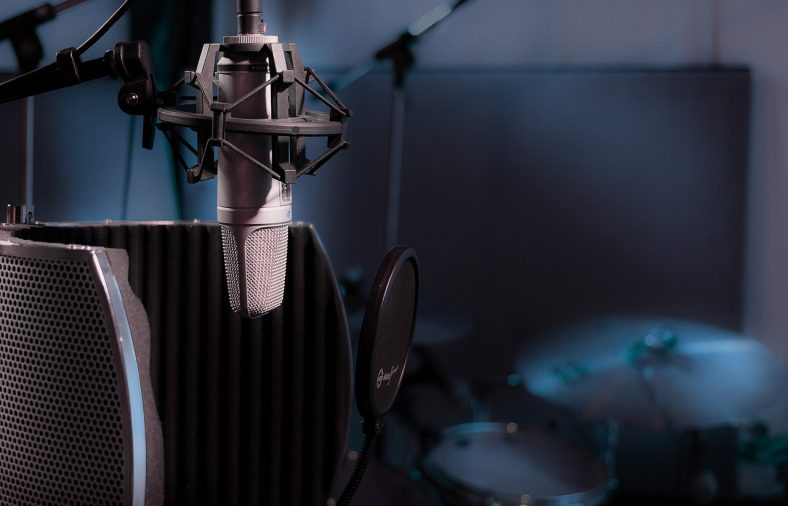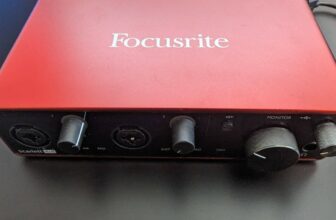
When we listen to our own voice as we talk or sing, the sound waves vibrate through our skulls resulting in us thinking our voice is lower in pitch. This is why our voice sounds very different when we listening to it in recordings.
Even the greatest of singers often cringe when hearing their voice.
This happens because sound waves first reverberate in our eardrums. This is the voice or sound that other people hear. But for us, the journey of the sound wave does not end there. These vibrations continue to travel up through our skull, which is a bone. When sound travels through the bone it spreads out, resulting in the lowering of the pitch. This gives us a false sense of bass or baritone. Thus we sound very different from what we think we sound like.
The cerebrospinal fluid that surrounds our brain also aids in modifying the sound we hear and how our brain perceives it.
Apart from the science of it, many factors in our recording environment also shape the way we sound. It could be equipment, the room, or even the mic placement.
Contents
Recording Environment
Before anything else, the room or floor we record our voice in plays a very important part of what we sound like. If it is a small studio room with a low ceiling and a thickly carpeted floor, our voice will sound completely dry, lacking in any reverb or delay.
Although in theory, this is great because we can always add effects later, this is not the best way to record because we are unable to emote correctly during our take. The signal is too dry and does not evoke any feeling.
A room, any room will have reverb in it. This helps us sound better but also sing better.
Conversely, a room with a very high ceiling, windows, and wooden floors are also not conducive to recording all sorts of vocals.
The best environment is one that is a middle-ground between these two spaces. If you have a home recording setup, you can buy a portable recording booth that will cut some reverb from your room but not make it completely dry.
Another thing to be mindful of is external noise. While we may not hear it during our recording takes, noise can often distort the texture of our voice.
Microphones And Their Placement
Just like the room, the kind of microphone we use is also crucial. Professional musicians will tell you that it is not how expensive your mic is but how you use it and if it is for you at all. Vocalists generally use condenser microphones because the diaphragms of these follow sound waves accurately since they have a low mass. They also have high sensitivity and low levels of noise. They usually require an external source to power up.
But this is not to say that all dynamic microphones are bad for vocals. For example, the Shure Beta 58A is a go-to for many musicians for live performances as well as vocal takes. It is cheap and reliable. The trick is to know how your mic works and how to project your voice.
How far away or close you stand to your mic, how high or low it is set in relation to your body drastically alters the sound being recorded. Standing too far away from the mic will mean that you will often have to use additional force to project better. This can result in you going off-key. Standing too close to your mic will distort the audio being recorded because microphones will pick up on additional noises made by your mouth.
Post-Processing Your Audio
A dry voice, lacking in any effects is never a good thing to listen to. Even if you are a hundred percent in tune, your voice will still sound unpleasant. This can be easily fixed using audio effects such as reverb, delay, or even chorus.
Audio and mixing engineers generally EQ vocals before adding effects to them. We will notice peaks and troughs in the frequency spectrum when we playback our vocal takes. Setting the EQ correctly will ensure that it sounds balanced and certain frequencies are boosted while some are toned down. All DAWs have in-built plugins for EQ and mastering, making our lives a lot easier and our voices a lot less cringe.
Factors To Keep In Mind While Recording
- Our voice type and vocal range: when we sing into a mic, it is important to remember to change our position slightly when we are recording. If there is a low part, move closer to the mic and step slightly away when approaching higher notes.
- Enunciation and technique: singing is very different from speaking, it is important to be clear, especially when pronouncing syllables such as ‘p’, ‘f’, ‘s’, or ‘th’. These can often cause pops and hisses in the audio. Make sure you have a pop guard or filter placed before your mic to avoid them.
- Projecting the voice correctly: whether you sing, rap or beatbox, you need to know how and when to project your voice. Be careful of not straining your voice if the vocal parts require you to be loud. Remember that the higher the frequency, the more shrill you will sound.
- The mood: often overlooked, but how you are feeling when recording your vocals also determines how you sound. If you are not comfortable in your environment, too tired, or simply not “feeling it”, then it will show. Take a break if you feel fatigued and approach your vocal takes with a clear mind.
Summary
All musicians will tell you that it takes a little bit of time to get used to the sound of your voice. Once you get past the self-loathing, you will hear your voice for what it really is and start to make improvements in your technique. Practicing vocal exercises will not only increase your range but also give you better control over holding your notes.
You don’t need fancy microphones or access to the best studios to get a good vocal sound. All you need is technique, skill, and lots of practice!





